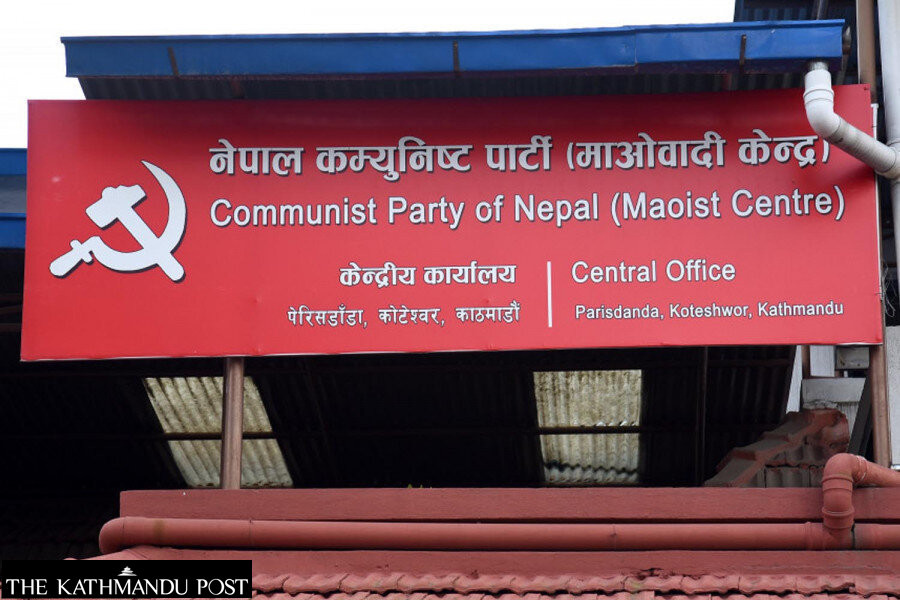Politics
Second Supreme Court setback for CPN (Maoist Centre) in a year
Constitutional bench bans use of ‘janayuddha’ (People’s War) in government documents.
Post Report
The Supreme Court has shattered yet another attempt by the CPN (Maoist Centre) to institutionalise its “people’s war”.
A year after “scrapping” the decision of the erstwhile Pushpa Kamal Dahal-led government to announce a public holiday to mark the launch of the Maoists’ decade-long “people’s war’ in 1996, the top court has issued an order not to use ‘janayuddha’ in government documents.
Issuing an interim order in a writ petition filed by Advocate Gyanendra Aran, the Constitutional Bench has directed the federal and Madhesh provincial governments not to use it until the final verdict. Aran, who also is a victim of the Maoist insurgency, had challenged the government's decision to include the term in official documents, saying it had glorified the killings and violence.
The text of the ruling from last week was made public on Thursday.
The national budget presented by Barshaman Pun, finance minister in the erstwhile Dahal government, on May 28 for the current fiscal year mentions “people’s war”. Similarly, the Madhesh Province’s fiscal budget for 2024-25 also mentions the term.
The court says that the use of “people’s war” is against the spirit of the preamble of the Constitution of Nepal and its Article 42 (5). Instead of “people’s war”, the Article uses ‘armed conflict’ to refer to the Maoist insurgency.
A five-member bench led by Chief Justice Prakash Man Singh Raut also cited how the Constitutional Committee of the Constituent Assembly on January 3, 2010, had rejected the terminology proposal.
During eight years of constitution drafting, the Maoist Centre invested all its effort to put the term into the constitution. However, the former insurgents were unsuccessful as the rest of the parties stood against it. It took several sittings and days for the parties to agree that the issues which cannot be decided with consensus would be put to a vote.
The “people's war” was one such contentious issue that was put to vote but was rejected by the majority. ‘Armed conflict’ has been in official use to indicate the 1996-2006 insurgency.
The Maoist Centre leadership has spoken against the top court’s ruling saying that banning the term is against the democratic spirit.
“I heard you [people’s war] are banned; perhaps they want to lock you in a cold cellar knowing that you are a spokesperson for social justice,” Janardan Sharma, a Maoist Centre’s deputy general secretary, wrote on Facebook. “A ban is a mockery of democracy. The people’s war—you have been banned.”
Now the same constitutional bench will conduct final hearing on the case before passing a verdict. This is the second time in a year the top court shot down the attempt of the third largest party to institutionalise “people's war”.
On December 28 last year, the Supreme Court annulled the government’s decision to declare Falgun 1 a public holiday as the ‘People's War Day’.
A division bench of justices Anand Mohan Bhattarai and Mahesh Sharma Paudel had quashed the government’s decision on a public holiday while responding to a writ petition by various individuals, including Advocate Aran.
The government in February 2023 had announced a public holiday to commemorate the ‘People’s War Day’ despite reservations from a coalition partner. The Rastriya Prajatantra Party then refused to attend the Cabinet meeting, expressing displeasure with the decision.
The rebellion that started on February 13, 1996, concluded following a Comprehensive Peace Agreement on November 21, 2006.
The Maoists, who led the insurgency, observe the first day of the Nepali month of Falgun as the People’s War Day every year. However, other political forces see the marking of the day as a public holiday as a glorification of the conflict—and hence unacceptable.




 8.67°C Kathmandu
8.67°C Kathmandu













